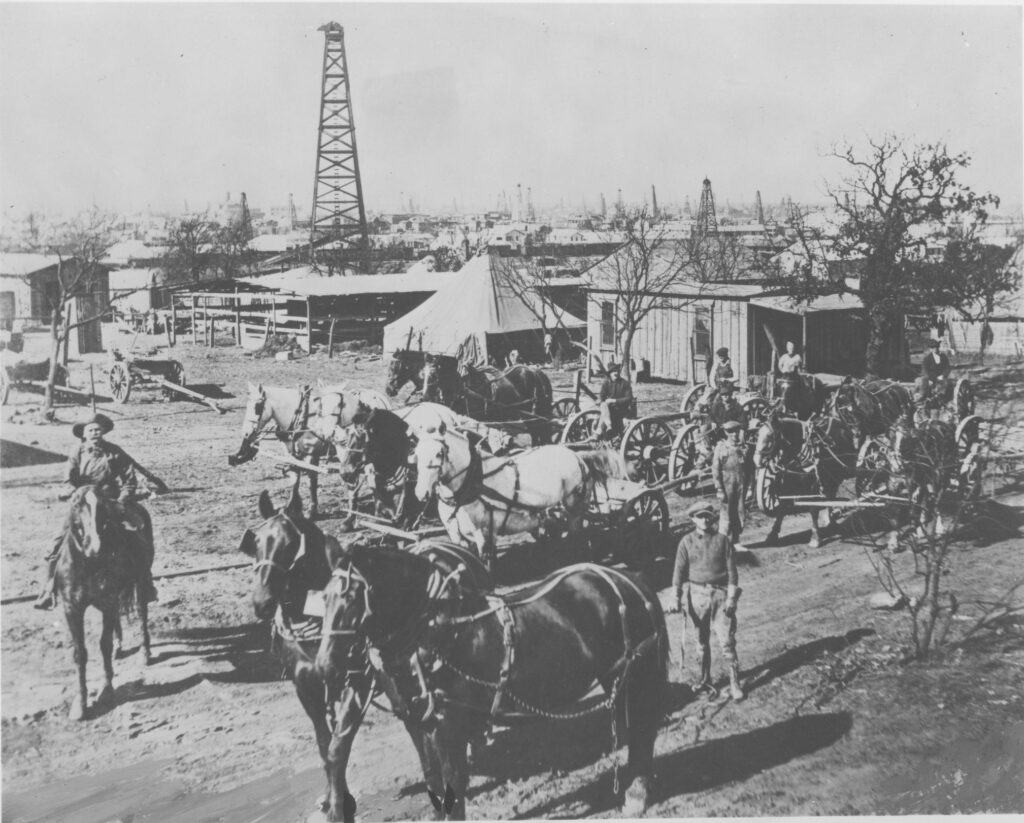The natural gas and oil industry has come a long way since its inception in the mid-19th century. From the first oil well drilled in Pennsylvania in 1859 to the advanced drilling technologies used today, the industry has evolved to meet the demands of a rapidly changing world.
In the early days of the industry, oil was mainly used for lighting and lubrication. However, as the world became increasingly industrialized, oil became a vital component in the production of everything from plastics to gasoline. The discovery of natural gas, a cleaner-burning fuel, in the early 20th century only added to the industry’s importance.

Image Courtesy of the Petroleum Museum Facebook Page
The industry has faced its fair share of challenges over the years, including environmental concerns and fluctuating prices. However, it has also made incredible advancements. For example, hydraulic fracturing, or “fracking,” has revolutionized the industry by allowing companies to extract natural gas and oil from previously inaccessible sources.
Another major development has been the rise of renewable energy sources, such as wind and solar power. While these sources still only account for a small percentage of the world’s energy production, their increasing popularity is a testament to the changing demands of consumers and governments alike. These sources are still in their infancy, making it vital for natural gas and oil to act as a backup source.
Today, the natural gas and oil industry continues to innovate and adapt to new challenges. From using artificial intelligence to improve exploration and production processes to investing in carbon capture and storage technology, companies are working to reduce their environmental impact and ensure a sustainable future.
Despite the challenges and controversies surrounding the industry, there’s no denying its importance in powering the world’s economies and improving the quality of life for people around the globe. As we look to the future, the natural gas and oil industry will undoubtedly continue to evolve and play a vital role in meeting the world’s energy needs.
